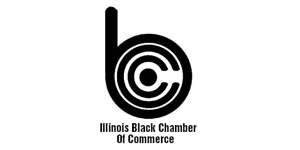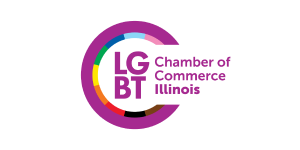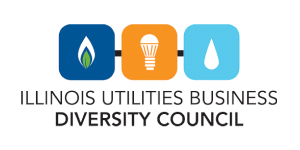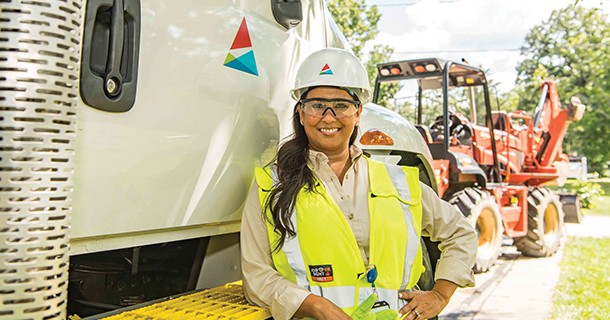Statistics
Inclusive procurement practices provide opportunities for diverse businesses that in turn increase representation, create job opportunities and provide economic advancement for historically underrepresented groups, including racial minorities, women, veterans and members of the LGBTQ+ community. Southern Company Gas’ engagement with small, minority, women and veteran-owned businesses in 2020 and 2021 led to over $3 billion in contributions to the U.S. economy and sustained nearly 20,000 jobs.


.
What will I need?
.
Step 1
Create a Power Advocate account.
Step 2
Fill out application with company information.
Step 3
Upload proof of certification.
.
.
How do I get certified?
We recognize a number of certification agencies.
See all certification agencies
.
.
Advocacy Groups We Support







.
FAQs
Who qualifies as a diverse supplier?
A diverse supplier is one which is certified by a third-party (see Certification Agencies) as having met the definition of being at least 51 percent owned, controlled AND operated by one or more members of a diverse group. Diverse businesses include those that are women-owned, minority-owned, veteran-owned or disabled-owned. HubZone, small disadvantaged and small businesses are also considered diverse businesses.
I am self-certified. Can I still register as a diverse supplier?
To be registered in the Supplier Inclusion Program as a diverse supplier, your business must be certified by one of the recognized certification agencies. In circumstances where we decide to make an exception, we would provide an self-certification form and affidavit; however we strongly encourage all suppliers that want to be included in our Supplier Inclusion Program to obtain third-party certification.
How can I do business with Southern Company Gas?
Southern Company Gas’ Purchasing organization is responsible for facilitating and implementing the procurement and contracting of materials, supplies, equipment, software and services. Purchasing is responsible for seeing that applicable corporate procurement, contracting guidelines, and procedures are followed throughout the company. This role includes competitive bidding, requests for proposals, conflict of interest checks, contract awards, insurance requirements, and supplier/contractor performance management. Applications from suppliers/contractors that can provide materials or services to Southern Company Gas and its subsidiaries will be promptly received and given fair consideration as our needs arise.
Does Southern Company Gas have a commitment to diverse supplier communities?
Southern Company Gas purchases a large and diverse number of products and services from numerous suppliers/contractors (see Supplier Opportunities). Southern Company Gas is committed to doing business with quality suppliers/contractors that are representative of the diversity of the communities that we serve. It is also our mission to provide development, education, training and procurement and contracting opportunities for diverse businesses.
What are Southern Company Gas’ expectations of their suppliers?
Southern Company Gas requires our suppliers/contractors to follow applicable laws, meet or exceed industry standards and conduct business in an ethical manner. Each supplier/contractor may be required to provide a certificate of insurance for approval that meets specific required coverage and names Southern Company Gas as “Additional Insured.”
Does my registration guarantee that I will be selected as a supplier?
No. However it does give suppliers/contractors opportunity for consideration as business needs arise.
What are the classifications of a diverse businesses?
- Small Business: a business concern that is independently owned and operated, is organized for profit, and is not dominant in its field. Depending on the industry, size standard eligibility is based on the average number of employees for the preceding 12 months or on sales volume averaged over a three-year period. Refer to the SBA Small Business Sizing Standards.
- Woman-Owned Business is defined as a business
- that is at least 51 percent owned by a woman or women, or, in the case of a publicly owned business, at least 51 percent of the stock is owned by one or more women; and
- whose daily business operations are managed and directed by one or more of the women owners. “Operate” means actively involved in the day-to-day management.
- Minority-Owned Business is defined as one
- that is at least 51 percent owned by one or more minority individuals, or, in the case of a publicly owned business, at least 51 percent of the stock is owned by one or more minority individuals; and
- whose daily business operations are managed and directed by one or more minority owners. “Operate” means actively involved in the day-to-day management.
- Minorities include the groups with the following ethnic origins:
- Black or African-American
- Asian or Pacific-American (persons with origins from Japan, China, the Philippines, Vietnam, Korea, Samoa, Guam, U.S. Trust Territory of the Pacific Islands [Republic of Palau], Commonwealth of the Northern Mariana Islands, Laos, Cambodia [Kampuchea], Taiwan, Burma, Thailand, Malaysia, Indonesia, Singapore, Brunei, Republic of the Marshall Islands, Federated States of Micronesia, Macao, Hong Kong, Fiji, Tonga, Kiribati, Tuvalu, or Nauru)
- Subcontinent Asian-American (persons with origins from India, Pakistan, Bangladesh, Sri Lanka, Bhutan, the Maldives Islands or Nepal)
- Hispanic or Latino
- Native Alaskan,
- Native American
- Native Hawaiian and Other Pacific Islander
- Disadvantaged Business: a business
- that is at least 51 percent owned by disadvantaged individuals, or, in the case of a publicly owned business, at least 51 percent of the stock is owned by one or more disadvantaged individuals; and
- whose daily business operations are managed and directed by one or more disadvantaged owners. “Operate” means actively involved in the day-to-day management.
- Disadvantaged individuals include Black-Americans, Hispanic-Americans, Asian-Americans, and other minorities, or individuals found to be disadvantaged by the Small Business Administration pursuant to Section 8 of the Small Business Reauthorization Act.
- Veteran Owned Business is a business
- that is at least 51 percent owned by a veteran with honorable service affirmed by the Veterans Administration (VA) or, in the case of a publicly owned business, at least 51 percent of the stock is owned by one or more veterans with honorable service affirmed by the VA; and
- whose daily business operations are managed and directed by one or more service-disabled veterans with honorable service affirmed by the VA. “Operate” means actively involved in the day-to-day management.
- Service-Disabled Veteran Business is a business
- that is at least 51 percent owned by a service-disabled veteran with honorable service affirmed by the VA or, in the case of a publicly owned business, at least 51 percent of the stock is owned by one or more service-disabled veterans with honorable service affirmed by the VA; and
- whose daily business operations are managed and directed by one or more service-disabled veterans with honorable service affirmed by the VA. “Operate” means actively involved in the day to day management.
- Disabled-Owned is a business that is at least 51 percent owned, operated and controlled by a person or group of persons who meet the state’s definition of a legally disabled person in which the business is headquartered.
- HUBZone (Historically Underutilized Business Zone) is defined asa small business by Small Business Administration (SBA) size standards. Its principal office must be located within a HUBZone, which includes lands on federally recognized Indian reservations; it must be owned and controlled by one or more U.S. citizens; and at least 35 percent of its employees must reside in a HUBZone. To find out if you are in a HUBZONE, please visit the Small Business Administration Web site.
For more information, please e-mail questions or comments to Supplier Inclusion Supplier_Diversity@southernco.com.
.



